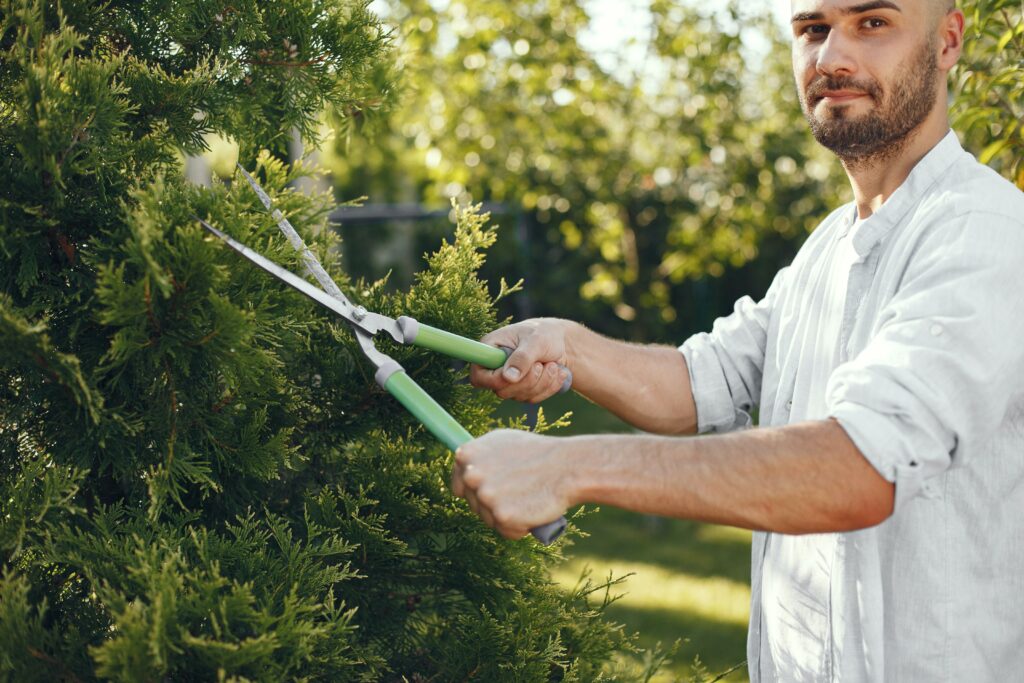Pests, often perceived as uninvited guests, can pose severe threats to our households. They come in a variety of forms, such as insects, rodents, or microbes, and are not only a nuisance but can also cause significant health and structural damage. For instance, pests like termites can weaken the wooden structures of your home, while others like mosquitoes and rats are notorious for spreading diseases. In this document, we aim to provide you with insightful and educational tips on how to effectively safeguard your home against these unwelcome invaders, ensuring a safe and comfortable living environment for you and your loved ones. Understanding pests, their habits, and their impacts is the first step in effective pest management.
Work With Professionals
If an infestation becomes too large to handle, don’t hesitate to call professional pest control services. They possess the necessary expertise and equipment to handle significant infestations. Moreover, they can also provide long-term solutions to prevent future pest problems. Before hiring any company, make sure to research their reputation and reviews from previous clients. Now, whether you rely on experts from MrBuggs.com in Alabama or pest control services in California, always remember that seeking professional help is a smart option when dealing with severe pest issues. Professional exterminators not only have access to advanced methods and products but also know the ins and outs of different pests, making them better equipped to handle any situation.
Maintain Hygiene & Store Food Properly
Regular cleaning, particularly of food residues on surfaces and floors, combined with proper food storage in sealed containers, can significantly deter pests. Pests are attracted to food sources, and leaving them openly accessible is an open invitation for infestation. Ensure that all food items are properly stored in containers with tight lids, including dry goods like flour and cereal. Additionally, keep your kitchen and dining area clean by promptly wiping up spills and crumbs, regularly emptying the trash, and disposing of any ripe or rotting fruits or vegetables. For outdoor areas, make sure to keep garbage cans tightly closed and away from your home’s entrance.
Seal Access Points & Dehumidify
Sealing potential entry points such as cracks and crevices around doors, windows, and walls, along with using dehumidifiers in damp areas, can prevent pests from entering and thriving in your home. Pests often seek out warm and moist environments, making basements, attics, and crawl spaces perfect habitats for them. By keeping these areas dry and well-ventilated, you can reduce the chances of pest infestations. Additionally, regularly inspecting your home’s exterior for any openings or damage can also prevent pests from finding their way inside. For larger openings, consider using steel wool or wire mesh as an effective sealant.
Regular Inspections & Outdoor Maintenance
Routine professional pest inspections and regular lawn maintenance can identify potential infestations early and eliminate breeding grounds, thereby controlling pest populations. Lawn care, such as trimming shrubs and trees away from your home’s exterior, can prevent pests like ants and cockroaches from gaining easy access to your home. Moreover, keeping a tidy yard by removing leaf piles and debris can discourage rodents from making their homes near yours. Inspecting outdoor furniture or equipment before bringing them indoors can also help prevent any hidden pest infestations from entering your household.

Effective Waste Management
Proper and regular disposal of garbage, with tightly sealed trash cans, can prevent pests from being attracted to the waste. It is essential to dispose of any organic waste, such as food scraps and pet waste, promptly and appropriately. Ensure that your garbage cans are regularly cleaned and sanitized to prevent odors that can attract pests. Additionally, avoid leaving trash bags or containers outside for extended periods, as this can attract pests like raccoons and stray animals. Lastly, consider using pest-proof trash cans or bins to prevent pests from accessing your waste.
Use of Natural Repellents
Incorporating pest-deterring plants such as lavender and mint into your home and garden can serve as a natural barrier against pests. These plants emit scents that are unpleasant to pests, making them less likely to enter your home. Furthermore, using essential oils like peppermint or cinnamon can also repel pests and be used as a natural alternative to chemical-based repellents. However, it is important to note that while natural repellents may be effective in deterring pests, they may not eliminate an existing infestation and should be used in combination with other preventive measures.
In conclusion, understanding the habits and preferences of pests is crucial in effectively protecting your home from infestations. By incorporating these tips into your pest management plan, you can not only prevent current pest problems but also minimize future risks. Remember to regularly inspect your home’s interior and exterior, maintain good hygiene and hygiene practices, seek professional help when needed, and utilize natural deterrents for a well-rounded approach to pest control. With these best practices in place, you can ensure a safe and comfortable living environment for you and your family.


